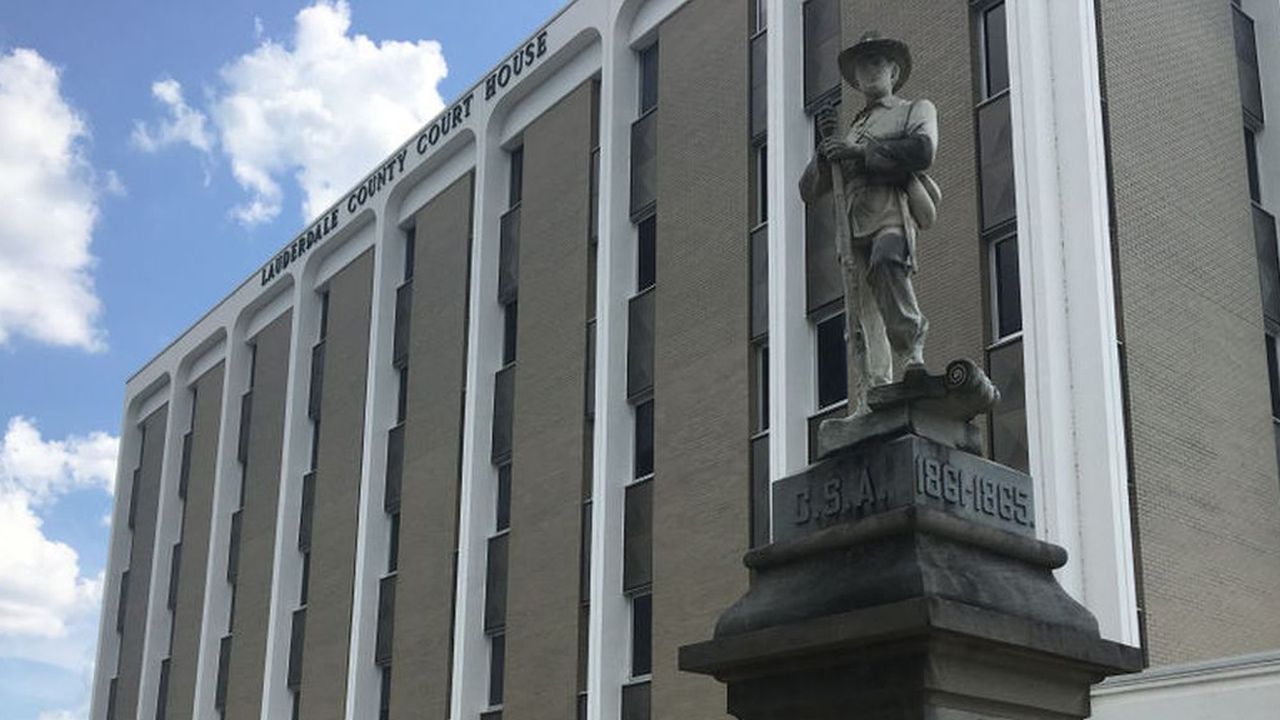Alabama bill to increase fines for removing monuments stalls
A bill to potentially increase the financial penalties that local governments would face for violating a 2017 law that blocks moving or changing historical monuments, buildings, and streets was delayed Tuesday after several people spoke against it at a public hearing.
The bill, SB51 by Sen. Gerald Allen, R-Cottondale, would amend the law the Legislature passed seven years ago to protect Confederate monuments, the Alabama Memorial Preservation Act of 2017.
The law says, “no architecturally significant building, memorial building, memorial street, or monument which is located on public property and has been so situated for 40 or more years may be relocated, removed, altered, renamed, or otherwise disturbed.”
Those same structures in place for at least 20 years but less than 40 can only be relocated, removed, altered, or renamed if the entity that controls the public property receives a waiver from the Committee on Alabama Monument protection.
Under the current law, local governments that violate the law face a fine of $25,000.
Allen’s bill would change that to $5,000 per day for each day that the entity controlling the property failed to take restorative action. The bill would allow the attorney general to commence a civil action to ask a court to block a threatened or continuing violation of the law.
The bill said the attorney general could stay the fine if the local government submits documentation that it has started restoration.
Also, under current law, if a local government applies for a waiver from the Committee on Alabama Monument Protection, and the committee fails to act on it within 90 days, the request is deemed granted. Allen’s bill would change that to say that if the committee fails to act in 90 days, the request would be deemed denied.
David Gespass, an attorney who spoke against the bill, questioned that change.
“At the very least, the committee should be required to explain why it’s denying an application that a government entity feels is necessary,” Gespass said.
Camille Bennett, founder and executive director of Project Say Something, which has worked to remove a Confederate monument from the Lauderdale County Courthouse in Florence, was the first to speak in opposition to Allen’s bill. She said Allen had told her that the law would also protect monuments honoring Martin Luther King Jr., but she challenged that argument.
“That’s a false equivalency,” said Bennett, who said she has received death threats for her stance. “Martin Luther King won a Nobel Peace Prize. There’s no reason to remove his name from anything.”
Bennett said a speaker at the dedication of the Lauderdale County monument in 1903 referred to Black people as a “mongrel race.”
Several members of the Senate County and Municipal Government Committee, which held the public hearing, spoke against the bill.
Sen. Linda Coleman-Madison, D-Birmingham, said she was opposed to the Memorial Preservation Act when it passed in 2017 because it was punitive on local governments. Coleman-Madison said she was not opposed to Confederate statues but that the history needs to be presented in its full context.
“I believe history should be told and you should tell the truth about it,” Coleman-Madison said. “The good, the bad, and the ugly.”
“That was a war against the United States, and this is something that we still want to uphold?” Coleman-Madison said.
Sen. Kirk Hatcher, D-Montgomery, echoed Coleman’s comments and said the restrictions of the Memorial Preservation Act violate free speech.
Sonny Brasfield, executive director of the Association of County Commissions of Alabama, questioned the provision that automatically denies a waiver request if the committee fails to take action on a request within 90 days. He said the ACCA supports adding the provision for the attorney general to seek an injunction but opposed increasing the fine to $5,000 a day.
After the public hearing, Sen. Chris Elliott, a Republican from Baldwin County and chair of the County and Municipal Government Committee, said Allen’s bill did not have the votes to get out of committee in its current form. Elliott postponed a vote on the bill.
